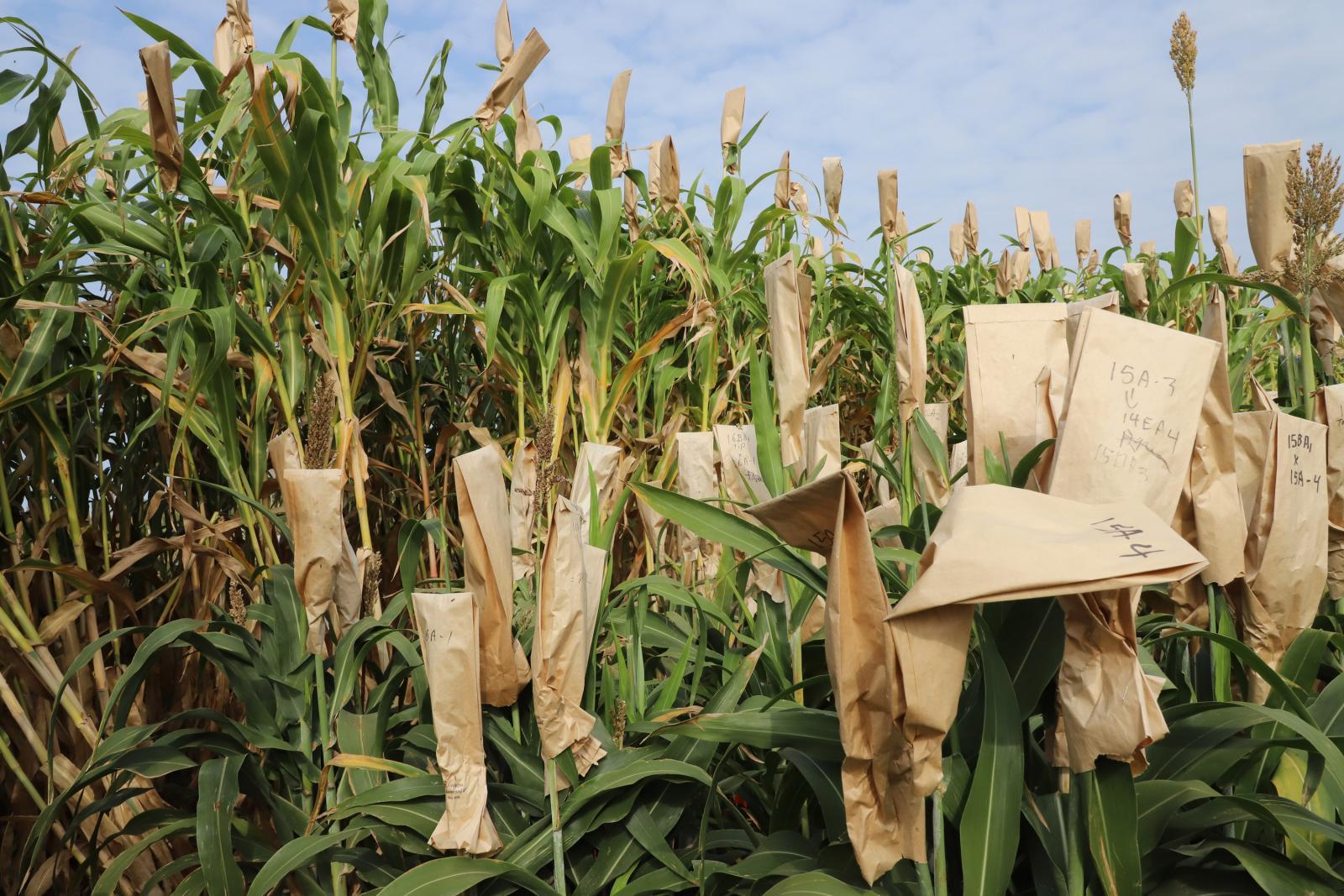Instructor(s): Blaine Johnson
Number of Credit Hours: 2
Fall Semester 2023: The course will be offered on-line.
Prerequisites: The course is offered by permission only. While the course is an introductory course in hybrid breeding, prior exposure to basic genetics is essential. A prior course and/or experience in plant breeding would be helpful, it is not essential. Please contact the instructor if interested in the course.
Description: Topics include: (a) Underlying population and quantitative genetics theory as applicable to hybrid breeding decisions; (b) Selection and sampling from a genetic distribution; (c) Heterosis, development, and utilization of heterotic groups and germplasm pools; (d) Design of a breeding program encompassing both parental line and hybrid development; (e) Estimation and use of genetic parameters in making selection decisions, and (f) Management and logistics of a hybrid breeding program. Topics draw heavily from maize breeding with a strong industry perspective.
Who should take this course: This course is for graduate students, at either the M.S. or Ph.D. level, who anticipate a career in plant breeding (either within private industry or a public institution), or those who simply wish to extend their current knowledge and understanding of breeding for a hybrid crop.
Why take this course: A large proportion of career opportunities in plant breeding are those associated with hybrid breeding, with opportunities in maize/corn breeding being dominant. Prior this course the Department of Agronomy & Horticulture has not offered a course in hybrid breeding where the primary breeding objective was development and release/commercialization of hybrids. This course is offered to fill that gap, with course content reflecting a strong industry perspective with the focal crop being maize.
How course taught: The course will consist of pre-recorded lectures, multiple assignments or projects, and interactive Zoom meetings, with dates/time of Zoom meetings to be determined by convenience of course participants. Canvas will be used to publish course information, pre-recorded lectures, and otherwise exchange files and documents.
This course is designed to help early career plant breeders develop their knowledge and skills in hybrid breeding by:
- Utilizing underlying genetic theory in the decision-making processes of breeding a hybrid crop where the goal is release/commercialization of genetically improved hybrids;
- Developing an understanding of the goal of genetic gain over time and/or generations for a hybrid crop, and the implications of that goal on the design of a hybrid breeding program;
- Developing and extending his/her ability to create and/or enhance the germplasm pools needed to sustain a hybrid breeding program;
- Developing and extending her/his ability to design an effective and efficient hybrid breeding pipeline, for both parental line and hybrid development, under resource constraints;
- Developing a thorough understanding of the logistical components of a hybrid breeding pipeline, the decisions associated with those components, and the management of groups and individuals that contribute to each of those components.
- Improving his/her ability to make selection and advancement decisions, quickly and with confidence, based upon relevant phenotypic and genetic data and information and upon a thorough understanding of breeding goals and targets.
- Enhancing her/his ability to recognize and respect the value of diverse perspectives, backgrounds, and ideas, and to effectively promote and utilize that diversity when making plant breeding decisions and managing a hybrid breeding program.
- Enhancing her/his ability to think, think, THINK! Analytically, Logically, and Critically!
